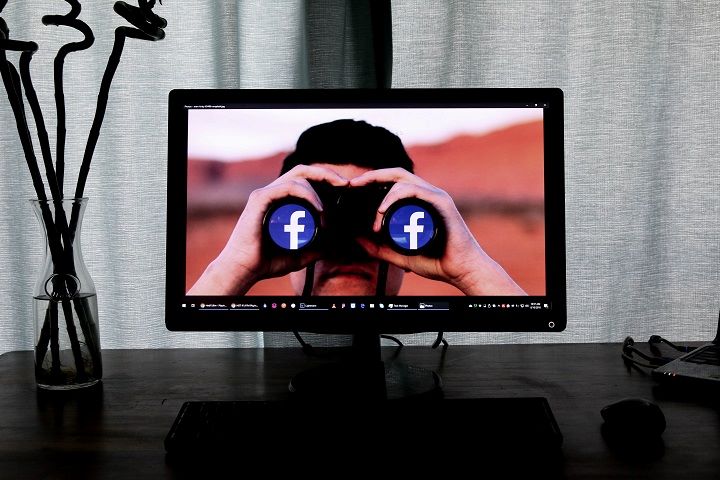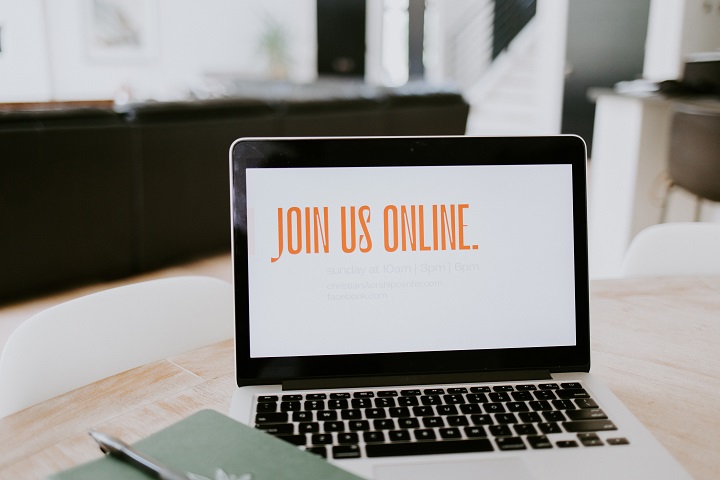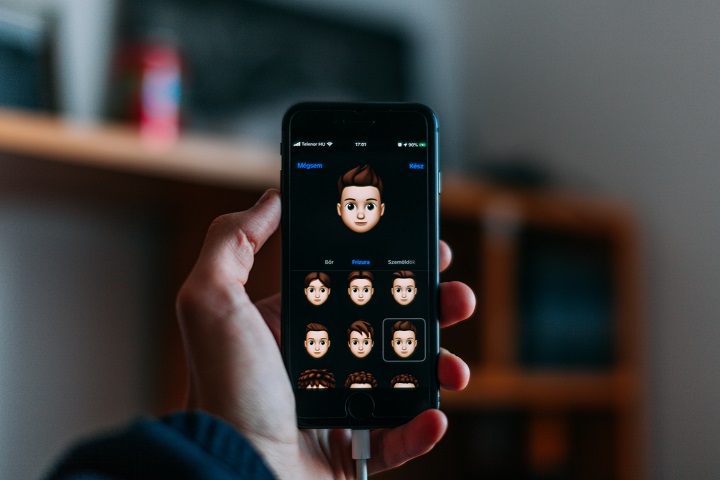Are you ready to dive into one of the most crucial topics of our digital era? You guessed it right – we’re talking about privacy. In this age of technology, our personal data is worth more than gold, and it’s essential to know how to safeguard it from unwanted attention or misuse.
But let’s be real, sometimes the thought of all this privacy stuff can be a little overwhelming. I mean, who hasn’t felt a little creeped out when an ad pops up for something you just mentioned in passing to your friend? It’s like the internet is listening to our every word… cue creepy music
But don’t sweat it! There are practical steps you can take to protect yourself and your personal data online. And don’t worry, we won’t get too technical. We’ll keep it light and breezy.
So, why is privacy so important? Well, imagine if all your personal data was available to anyone who wanted it. Your full name, date of birth, address, credit card information – all out there in the open for the world to see. Not exactly the most comfortable thought, right?
Imagine a world where every time you searched for something online, you suddenly started receiving ads for things you never wanted in the first place. Suddenly, your social media feeds are filled with ads for adult diapers and cat food… but you’re not even a cat person! Do you want to live in that kind of world?

In this blog post, we’re going to break down why privacy is so important in today’s world, and give you the juicy details on how to keep your personal data safe from being exploited or misused. We’ll also dish out some practical tips on how to maintain privacy in this increasingly connected world, and help you avoid the potential risks of oversharing online.
Why privacy matters
Sure, it may seem harmless to share a few personal details online here and there, but the potential risks can be huge!
For one thing, when you share personal information online, you’re essentially giving advertisers and cyber criminals a free pass to use that information however they see fit. And trust me, they’re not using it to send you birthday cards and Christmas presents.
Advertisers use your personal data to create targeted ads that are specifically tailored to your interests and online behavior. So, if you’ve been searching for a new pair of shoes, don’t be surprised when you start seeing ads for shoes popping up everywhere you look. It’s like they’re following you around, and not in a good way.
And don’t even get me started on cyber criminals. These guys are the real-life villains of the internet, using your personal data to steal your identity, access your bank accounts, and wreak havoc on your life. It’s like they’re the Joker to your Batman, and you don’t want to mess with the Joker.
But it’s not just individuals who are impacted by privacy breaches. When a company’s data is hacked, it can have far-reaching consequences for society as a whole. Just look at the recent Latitude Financial data breach, which exposed the personal information of about 14 million customers. That’s a lot of people’s information out in the open, and it can lead to some serious problems down the road.
That’s why protecting your privacy is not just about safeguarding your own personal information. It’s also about protecting the people around you and the greater community. By taking steps to protect your privacy, you’re helping to create a safer and more secure online environment for everyone.
Maintaining privacy online
Alright, now it’s time to get down to the nitty-gritty of protecting your privacy online. Here are some practical tips to help you keep your personal data safe and secure:
A. Tips for protecting personal data online:
Using strong passwords: This is like the first rule of the Internet. Your password should be strong and unique, and it should never be something obvious like “password123”. Come on, you’re better than that! Instead, use a combination of letters, numbers, and symbols to create a password that’s hard to crack.
Being cautious of phishing scams: Don’t let those cyber criminals fool you. They’ll try to trick you into giving up your personal information with fake emails, websites, or pop-ups. Always be skeptical of unsolicited emails or requests for personal information, and never click on suspicious links.

Reviewing and adjusting privacy settings: Take a few minutes to review the privacy settings on your social media accounts and other online profiles. You might be surprised at how much information you’re sharing with the world. Adjust your settings to limit the amount of personal information that’s available to strangers.
Using encryption tools: Encryption is like a secret code for your personal data. By using encryption tools, you can protect your sensitive information from prying eyes. You can use tools like virtual private networks (VPNs) or encrypted messaging apps to keep your personal data safe and secure.
B. The importance of keeping software and antivirus programs up-to-date: Alright, it’s time to get your tech game on point. Keep your software and antivirus programs up-to-date to ensure that you’re protected against the latest cyber threats. Trust us, you don’t want to be the person who didn’t update their software and ended up with a computer full of malware.
C. Avoiding oversharing on social media: We get it. Social media is a great way to connect with friends and family. But be careful about what you share online. Avoid sharing sensitive personal information like your home address or phone number. And for the love of tacos, don’t post pictures of your credit card or passport!
By following these practical tips for maintaining your privacy online, you can take a proactive approach to safeguarding your personal data and minimize the risks of cyber threats.
Protecting privacy in the real world
Now that we’ve covered how to protect your personal data online, let’s talk about how to protect your privacy in the real world.
A. Tips for protecting personal data in everyday life:
Be cautious of who you share personal information with: You never know who might be listening, whether it’s a nosy neighbor or a cybercriminal lurking nearby. So, be careful about sharing personal information in public places, over the phone, or online.
Shred sensitive documents before disposing of them: Before you toss away old bills, bank statements, or other documents that contain sensitive personal information, make sure to shred them to prevent them from falling into the wrong hands. Believe me, you don’t want to give identity thieves a chance to steal your identity and run up debts in your name.
Avoid using public Wi-Fi networks for sensitive tasks: Public Wi-Fi networks are convenient, but they’re also vulnerable to cyber threats. So, avoid logging into your bank account or sharing sensitive information while using public Wi-Fi, unless you’re using a virtual private network (VPN) to encrypt your data.
B. The importance of knowing your rights when it comes to data protection:
It’s important to know your rights when it comes to data protection, especially with the rise of data breaches and privacy violations in recent years. By understanding your rights under the law, you can better protect your personal data and hold companies accountable for any breaches that occur.
Protecting your privacy is not just about safeguarding your personal information; it’s also about protecting your identity, your finances, and your peace of mind. So, take these tips seriously and make privacy a priority in both your online and offline life.
The future of privacy: Emerging threats and Technologies
Hold your hat! It’s not over yet. It’s time to look into the future of data protection and explore the new challenges and opportunities that lie ahead.
A. New privacy threats in the digital age, such as facial recognition and data mining
As technology advances, new threats to privacy emerge in the digital age. Facial recognition technology is becoming more popular and could be used for surveillance without our knowledge. Data mining is another threat as companies can collect personal information from various sources and use it to make decisions about us without our consent.

B. Emerging technologies that can help protect privacy, such as blockchain and differential privacy
There are also new technologies that help protect your privacy. For example, blockchain technology helps protect personal data by creating a decentralized, tamper-proof ledger. Differential privacy is another technique that can be used to protect private information while extracting useful insights.
C. The Role of Regulation in Privacy Protection
Laws and regulations also play an important role in protecting our privacy. Governments around the world are beginning to introduce laws and regulations aimed at protecting personal information. It is important to keep up with these trends and advocate for greater privacy protections.
D. Tips for staying informed and proactive about privacy issues in the future
To stay informed and proactive about privacy issues in the future, you can follow reputable news sources and organizations that focus on privacy issues. Joining advocacy groups and supporting initiatives that aim to strengthen privacy protections can also make a difference. And, of course, continue to educate yourself about privacy best practices and implement them in your daily life.
By staying informed and proactive, we can navigate the emerging threats and technologies and safeguard our personal information.
Privacy and Mental Health
We all know that privacy is important to protect ourselves from scams and identity theft online, but did you know that privacy can also impact our mental health? In today’s digital age, our lives are constantly connected to the internet, and it can be easy to get lost in the sea of notifications and messages from social media and other online platforms.
It’s crucial to be mindful of how our digital habits affect our mental health. Taking control of our digital lives by setting boundaries for our online presence can help combat these negative effects. This can mean taking breaks from social media or turning off notifications during certain times of the day. It’s also important to be mindful of what types of content we consume online and how it makes us feel. Moreover, a growing body of research suggests that privacy breaches can have negative consequences on our mental health
Therefore, by prioritizing our privacy and taking control of our digital lives, we can improve our mental health and overall well-being. In addition to protecting our personal data, let’s also remember to protect our mental health by setting healthy boundaries and taking breaks from our screens.
Remember, you don’t have to be a slave to technology. Take control of your digital life and prioritize your privacy and mental health.
Wrap-up
Hey, we’ve covered some serious stuff in this post, but before we say goodbye, let’s have a quick recap.
In this digital age, our privacy is more important than ever. We share a lot of personal data online, and it’s essential to take the necessary steps to protect ourselves and our loved ones from potential threats like cybercrime and identity theft.
By following the practical tips we’ve laid out in this post, such as using strong passwords, being wary of phishing scams, and shredding sensitive documents, you’ll be well on your way to safeguarding your personal data online and in real life.
But, hold on to your sombreros, the future of privacy is constantly evolving, and it’s up to us to stay informed and proactive about emerging threats and technologies. So, let’s make a conscious effort to protect our privacy, and let’s make it fun! Encourage your friends and family to join you in the mission of keeping their personal data safe. You can even turn it into a friendly competition – who can come up with the most creative way to protect their privacy?
That’s a wrap! Thanks for joining us on this privacy journey. Stay safe out there, and we’ll catch you in the next post!

well articulated! very helpful